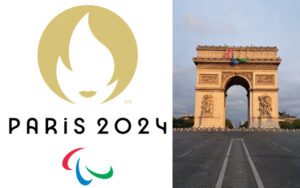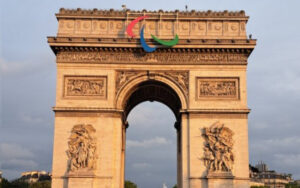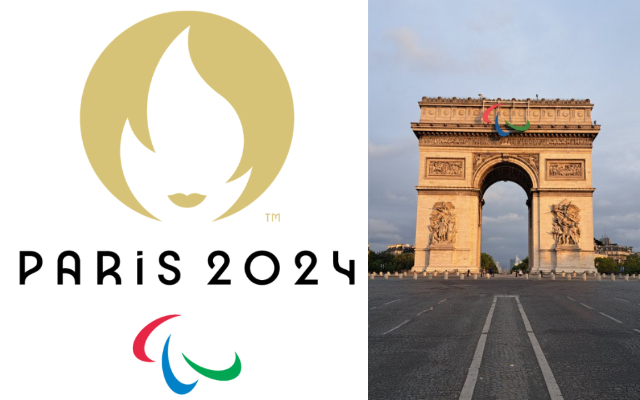
It was in 2004 that Devendra Jhajharia travelled to his first Paralympic Games. Unlike in 2024, when the Prime Minister, Sports Minister, members of the Sports Authority of India (SAI) and many more will give the Paralympics team traveling to Paris a fitting send-off (fixed for later today), one person accompanied Jhajharia to the airport back in 2004. That was his father. And as Devendra, current President of the Paralympic Committee of India (PCI), very pertinently recounted, “My father said to me: if you win a medal toh badlao aayga. Agar har jate ho toh kuch nahi badlaega [if you win a medal things will change. If you lose, nothing will change].”
Devendra went on to win gold in Athens. The very next year, the Government of India accorded recognition to the PCI. Since then, it has been a long and difficult journey. Lack of support and facilities meant athletes would have to run from pillar to post just to play sport. It meant they would have to struggle that much more than any able-bodied athlete could even dream of. And with Rio 2016, the struggle started to pay off when India won 4 medals, having sent a contingent of 19 athletes. Tokyo added to the story when a contingent of 54 athletes won 19 medals.
It had never happened that two Indians draped in the tricolour celebrated winning medals at an Olympic stadium in front of a near-packed crowd. It was to this rarity that the country woke up to on Saturday, September 10, 2016, in Rio, as Mariappan Thangavelu and Varun Singh Bhati won the gold and bronze in the high jump at the Paralympics. And in what was yet another huge moment for India, Deepa Malik followed up with a silver in the shot put on September 13, throwing 4.61 metres, a personal best.
For the Latest Sports News: Click Here

Finally, it was Jhajharia with his second Paralympic gold who ensured India rounded it off rather superbly in Brazil.
However, compared to the national outpouring of emotion in the aftermath of the bronze won by Sakshi Malik and badminton silver for PV Sindhu, the reaction to the gold, silver and bronze at the Para Games was at best muted. While the athletes were celebrated on social media by the ordinary Indian sports fan, politicians who joined the bandwagon in the Sakshi-Sindhu aftermath mostly kept away. State governments too, and in this case, many who had declared rewards for the two girls were also silent.
This is what has now changed. From the way para athletes have been given a send-off to the number of sponsors who have come forward, Paralympic sport in India is finally getting its due. It is essential to state in this context that our treatment of Sumit Antil, Krishna Nagar, Palak Kohli, Manasi Joshi and others, and the sensitivity and affection bestowed on these super achievers will go a long way to defining us as a ‘people’ and society. Are we celebrating our para athletes enough, or are we still going to discriminate between Olympians and Paralympians? Will Sumit be considered as decorated as Neeraj Chopra or Abhinav Bindra? Will awards and monetary rewards pour in from across the country, and will the 24/7 media which celebrated Manu Bhaker’s homecoming for over 48 hours do even a tenth of that when Sumit, Avani and Manasi return to India?

In the West, para athletes have for long been accorded the same respect as Olympians. Medal winners have been feted in the same manner and the para games receive similar prominence in the media. In India, however, this has never been the case. We have, as a society, tended to look down upon our para athletes, have invested little in facilities that encourage them to take up sport and done very little to decorate them and turn them into national icons. Such a mindset, appalling to say the least, betrays the very ideals of equality and civil liberty that the country stands for. The Paris Paralympics could be a major platform in transforming this trend.
Paris has given us the opportunity, to redeem ourselves and stand up to the test of our conscience. Each of the 84 athletes who will be in Paris have demonstrated that it was never about facilities and infrastructure as it is often made out to be. It was always about will and the determination to succeed. It was about the fire in the belly and the conviction to make a mark on the biggest stage of them all. Finally, it was about the burning desire to make the country proud.
Taking a cue from Neeraj, Manu, Sreejesh and the hockey team, maybe Sumit, Manasi and others can take a giant leap for Indian sport in the next few weeks. We now know that it is possible. Eminently possible. It is time to become a sensitive, multi-sport nation.
Also Read: August protest: Empowerment of women through sports




